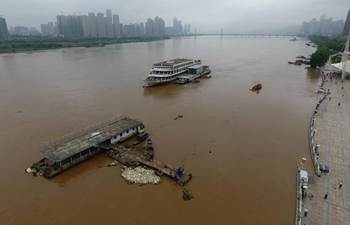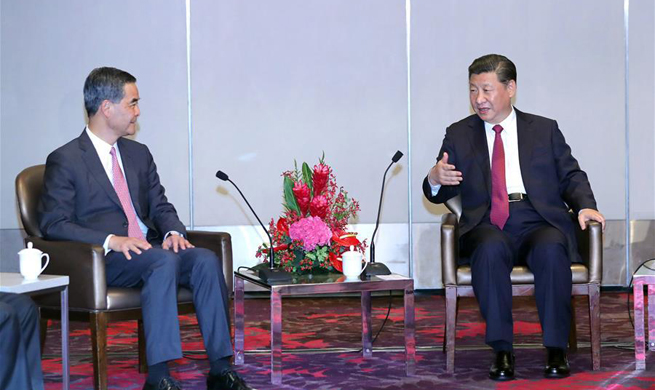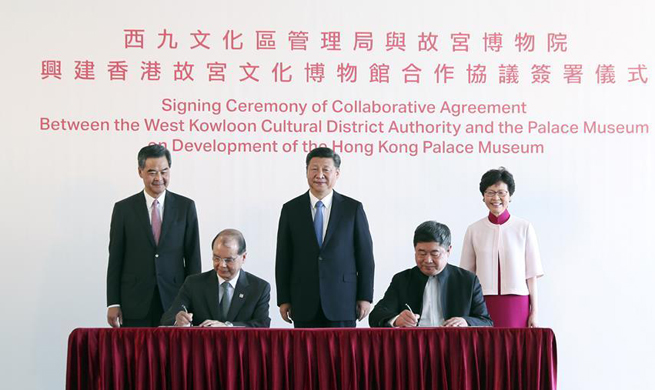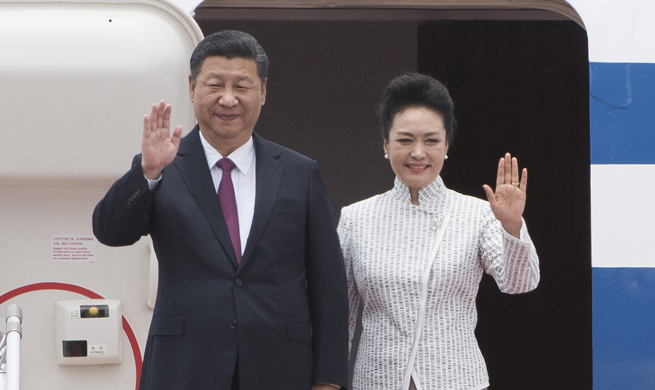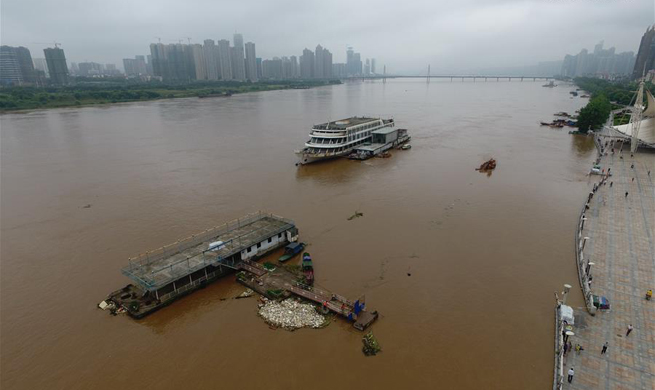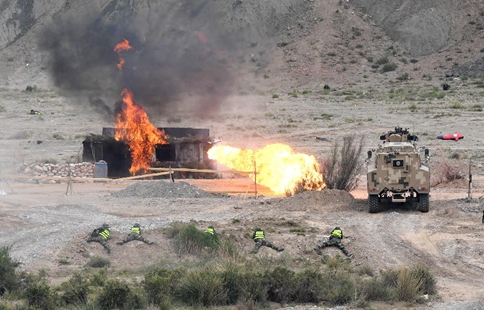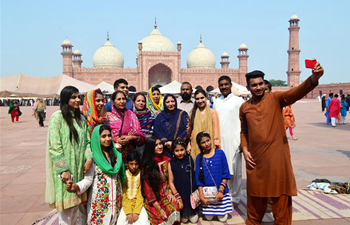by Fuad Rajeh
SANAA, June 29 (Xinhua) -- Peace in Yemen requires efforts from local peacemakers and foreign peace backers, observers said, as all are "investing" in war for their own interests at the expense of peace.
Yemen is facing the world's worst humanitarian crisis and cholera outbreak. Everything is collapsing, including public institutions and basic services, lawlessness is increasing, while peace is in limbo.
Peace in Yemen does not require miracles, observers said, arguing that the international community at least has the decision to end a war it has authorized here.
"Internal warlords have come together with external arms sellers to serve their own interests at the expense of peace," said Adil Al-Shuja'a, a politics professor at Sanaa University.
Observers also pointed out that regrettably, foreign players don't deal with the situations in conflict zones from humanitarian aspects but rather through the prism of their own interests and deal primarily arms sales.
Meanwhile, both the internationally recognized government and the Houthi-Saleh alliance, which have been fighting for two and a half years, are not satisfied with UN efforts and this represents a huge challenge to peace-building.
The UN-sponsored peace talks have always failed, and even at the last round of talks, the UN could not bring the Yemeni factions around one table.
Also, the Yemeni factions are setting tough conditions for each other. While the government insists that any peaceful solution should be based on the UN Security Council's resolutions, the outcomes of the 2013's national dialog conference and the Gulf Initiative, the Houthi-Saleh alliance is demanding solution be based on a dialog with Saudi Arabia. The Houthi-Saleh alliance has rejected UN resolutions and has other demands including choosing a new president.
Fuad Alsalahi, a political sociology professor at Sanaa University, said contradictions of the international community and proxy wars should be addressed to help Yemen achieve permanent peace.
"Contradictions of key foreign and regional players toward peace are so obvious. The United States and Britain for example have been involved in creative chaos and destruction in the region and at the same time are saying they working for peace," Alsalahi said.
"The other thing is that UN envoy to Yemen, Ismail Ould Cheikh Ahmed, has been proposing arbitrary peace roadmaps and approaches that practically can't solve the crisis in accordance with the references backed by the people and the international community," Alsalahi said, adding "hence the UN is supposed to reconsider its peace mechanisms."
The latest developments in the region, the Qatar crisis for example, have cast a cloud on the situation in Yemen, and all the warring parties are preparing for further military escalation.
Yaseen Al-Tamimi, a political writer and analyst, said the Saudi-led coalition has deviated from its main goal of restoring the legitimacy of the Yemeni government and stability to other goals including the war on terror and deepening disagreements with some of its members and considering them as enemies.
"Regional agendas are conflicting and all signs indicate there will not be a radical solution to the crisis soon and that Yemen's future will be more uncertain," Al-Tamimi said.
"More importantly, it seems that prolonging the war is part of the plan of the Saudi-led coalition in order to exhaust the country and in the end to impose solutions that first serve the interests of regional and international players," Al-Tamimi said.
"Moreover, the failure to achieve a decisive military victory coinciding with horrible consequences of the war is apparently forcing regional and international players to resort to ugly options," he said.
"I think they are attempting to impose solutions away from international resolutions and agreed references. Such solutions could state for bringing the former regime back to power," he concluded.
Peace also requires the local factions, especially the Houthi militant group which is more blamed for what is happening in the country, to take their moral responsibility and make concessions.
Nabil Albukiri, a researcher in international strategies and political writer, said the Houthi group has the clue to peace. "This group should make concessions to end a war it started at a time when few approaches, including the Saudi-led bombing campaign, can help restore peace in Yemen," he said.









